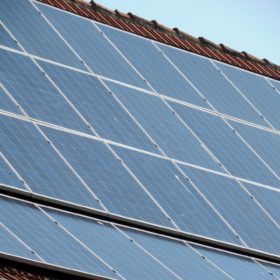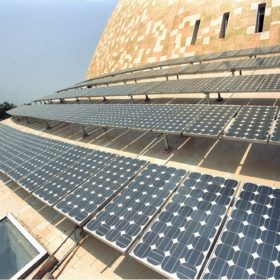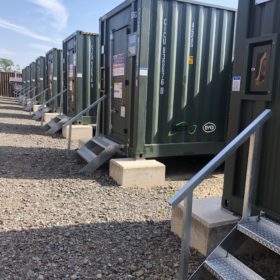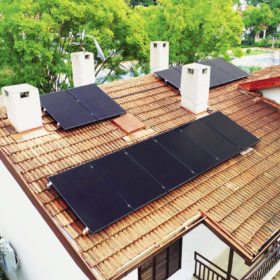India installed 1.53 GW of rooftop solar in 2019
The country’s cumulative installed rooftop solar capacity reached 5.4 GW by the end of December. The Indian government now aims to deploy 40 GW of rooftop PV by the end of 2023.
Covid-19: IHS Markit expects demand for private and commercial storage to fall significantly
A slump in demand would weigh more heavily on the storage industry than a temporary production shutdown and IHS Markit analysts say that is where the risk lies, rather than with a temporary shortage of battery cells. A similar prediction has been made for the PV market.
Net-metered rooftop PV on the rise in Malaysia
Sustainable Energy Development Authority figures show the country saw around 94 MW of new rooftop generation capacity added in the first 11 months of last year. That compares to less than 14 MW in the previous three years.
India added 1,836 MW of rooftop solar in last fiscal year
Maharashtra, Rajasthan, Gujarat, Karnataka and Tamil Nadu were the top five states by annual installation, accounting for 60% of the new capacity.
Grid service payments the key to unlocking China’s energy storage potential
The world’s biggest solar market could be about to replicate that feat in energy storage, provided it manages to reform the payment system for rewarding the grid services offered by batteries.
Product recall: SMA calls in MLPE over rapid shutdown problem
The inverter maker conducted tests and found the branded SMA TS4-R-F-42 could not always supply the rapid shutdown function called for by a new U.S. safety standard when applied in commercial and industrial systems featuring its inverter tech.
Turkey introduces net metering for residential PV and new rules for unlicensed solar
The government has finally issued a net metering scheme for solar systems not exceeding 10 kW of generation capacity – the country’s first attempt to support small scale PV. New rules for larger, unlicensed projects have also been introduced, with the size limit for eligible systems raised to 5 MW.
Four takeaways from Solarex
All the fundamentals are in place for Turkey to be a leading light in solar but an all-too-familiar lack of policy certainty, coupled with a troubled macroeconomic backdrop, mean the nation is still unable to realize its PV potential.
Dubai funding commitments demonstrate rise of corporate solar
Two Emirati developers are celebrating landmark deals with a commercial and industrial focus as Yellow Door Energy secures $65 million to expand operations into new markets and Adenium – one of Yellow Door’s backers – prepares to operate the region’s first industrial self-consumption and net metering project.
Indonesia introduces net metering
With a new decree, the Indonesian Ministry of Energy and Mineral Resources has enabled the owners of residential, commercial and industrial rooftop PV systems to sell excess power to the grid. The government hopes the new provisions will result in around 1 GW of deployed PV capacity over the next three years. Doubts, however, have been raised about the attractiveness of the scheme.










